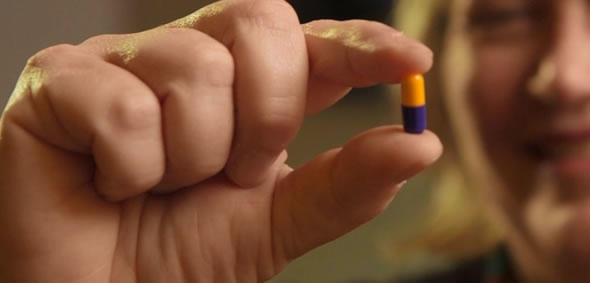July 24, 2017
Multiple sclerosis donor gratified to contribute to hometown research success

New study details the effects of a common acne drug in treatment of early multiple sclerosis (MS).
On June 1, the New England Journal of Medicine published a study led by UCalgaryMed researchers Dr. Luanne Metz and Wee Yong, PhD, detailing the effects of a common acne drug in treatment of early multiple sclerosis (MS). Results show that minocycline is an effective, affordable and safe treatment option for early MS.
The clinical trial was supported by Multiple Sclerosis Society of Canada and the Multiple Sclerosis Scientific Research Foundation (MSSRF). The early stages of this work were supported by the Canadian Institutes of Health Research (CIHR) and community support. Hank and Carol Swartout are two such donors who have invested in MS research.
Hank Swartout’s reasons for supporting MS research at the Cumming School of Medicine’s Hotchkiss Brain Institute (HBI) at the University of Calgary are highly personal. He was diagnosed with the disease nearly 20 years ago; it led to an early retirement from his post as CEO of Precision Drilling, one of the largest drilling companies in the world, which Swartout had founded.
As far as MS patients go, Swartout says he has been fortunate: his condition has progressed slowly over the years, and while he anticipates heavier drugs in his future, he has maintained a fair quality of life in the past two decades.
Swartout and his wife, Carol, first began supporting research at the HBI more than a dozen years ago, after they met with Dr. Luanne Metz and Wee Yong, PhD. The passion of both researchers and persistence in their work was clearly evident. That first meeting convinced the Swartouts that such support was both worthwhile and crucial. They gave willingly, despite the fact that, as Swartout says, “Medical research is probably the least glamorous thing people can give to. You don’t see instant results.
“The doctors give their life to this, and medical research is often a thankless job taking time and sometimes without the results you want,” he says. “The little that we give back is nothing compared to what researchers commit to.”
The Swartouts’ previous gift to HBI enabled the researcher team to purchase a crucial magnification and imaging tool called the ImageXpress. With the tool, the team could complete a cell reaction analysis in 24 hours that had previously taken an entire month. According to Yong, the equipment helped the research team better understand the physiological processes associated with MS and improve its prognosis.
The long-awaited announcement of this ground-breaking research is exciting for the Swartout family, to say the least. “It’s very gratifying that the small bit we gave could help,” says Swartout. “This is one of the most rewarding things we could have ever accomplished.”
And it’s particularly exciting, he adds, to see a momentous discovery unfold here at home. “It’s humbling to think it comes out of Canada. This research shows that Canada and Calgary can change the world. We have a first-class research facility and it should be supported. In my opinion, it’s one of the top medical centres in Canada.”
